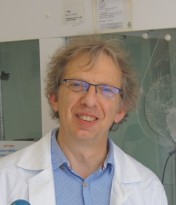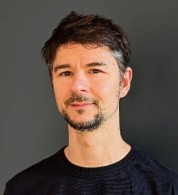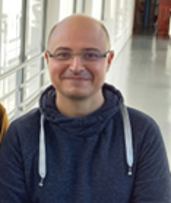- Homepage
- >Summer schools
- >Light Matters
Light Matters: Exploring Photochemistry and Photophysics from Basics to Breakthroughs
The Light Matters Summer School offers an in-depth journey exploring photochemistry and photophysics from basics to breakthroughs and specially designed for PhD students in chemistry, physics, materials science and related fields, keen to broaden their knowledge and engage with cutting-edge applications. The multidisciplinary program bridges the gap between fundamental concepts and innovative research, enabling participants to gain a comprehensive understanding of light-induced processes and their transformative potential in science and technology. Join us as we explore the fascinating interaction between light and matter, from fundamental science to innovative applications.
|
When |
June 23rd-June 27th 2025 |
|
|
Where |
Faculty of Science, University of Angers, France | |
|
For whom |
This program is designed for PhD students in chemistry, physics, materials science and related fields. Citizens of all countries in the world are eligible to apply (not younger than 18 years old). | |
|
Language |
English | |
|
Participation fee |
Students from partner universities: 500 EUR Students from non-partner universities: 600 EUR Professionals: 1,000 EUR Fees include welcoming and teaching materials, accommodation in a double room (2 students), coffee breaks and weekday lunches, social activities, transport pass and all costs related to scientific visits. If you are a student from the University of Angers, please contact summerschools @ univ-angers.fr | |
|
Learning outcomes |
The summer school program includes lectures by leading experts, practical workshops on (chiro)optics and interactive sessions designed to equip students with both theoretical knowledge and practical tools. Participants will also benefit from networking opportunities to encourage cross-disciplinary collaboration, with the chance to each to present a poster and a flash oral communication related to their PhD research works. | |
|
Topics |
Key topics include the fundamentals of photophysics and photochemistry, chiroptics, modelling techniques and large applications such as artificial photosynthesis, solar fuels, photocatalysis and organic photochemistry. The scientific program also explores medical innovations such as photodynamic and photothermal therapies. Explore the course here. | |
|
Credits |
3 ECTS | |
|
Enrol now |
There are 30 spots available for this program, assigned on a first-come, first-served basis. The program may be canceled if it doesn't reach a minimum of 10 participants; if so, you will be offered a refund. The deadline for application is April 13th, 2025. |
Course coordinators
|
|
Piétrick Hudhomme received his PhD from the University of Nantes in 1990, focusing on the multi-step asymmetric synthesis of antibiotics. Following a post-doctoral fellowship at the University of Sussex in UK, he began his academic career as an Assistant Professor at the University of Nantes. In 1998, he was appointed Professor at the MOLTECH-Anjou Laboratory of the University of Angers, where his research shifted towards the synthesis of organic materials. His current research interests include the organic synthesis of functional electro- and photoactive molecules for applications in molecular electronics, solar energy conversion and supramolecular chemistry. |
|
|
Stéphane Diring obtained his PhD in molecular chemistry from the University of Strasbourg in 2009. He subsequently joined Prof. Kitagawa’s group in Kyoto as a postdoctoral fellow, where he was later appointed assistant professor at the Institute for Integrated Cell-Material Sciences, Kyoto University. Since 2014, he has been a CNRS researcher at Nantes University. His research explores supramolecular chemistry, photo-redox active MOFs, and artificial photosynthesis. |
|
|
Olivier Galangau obtained his PhD in chemistry in 2011 from École Normale Supérieur de Cachan, under the supervision of Prof. P. Audebert. Following his postdoctoral training with Prof. T. Kawai at NAIST (Japan) he moved to Institut des Sciences Chimiques de Rennes (France) working with Dr. F. Pointillart. Since 2018, he joined the group of Stéphane Rigaut as CNRS research fellow. He is interested in developing new types of smart molecular/supramolecular materials, combining light- and/or electroswitchability. |





